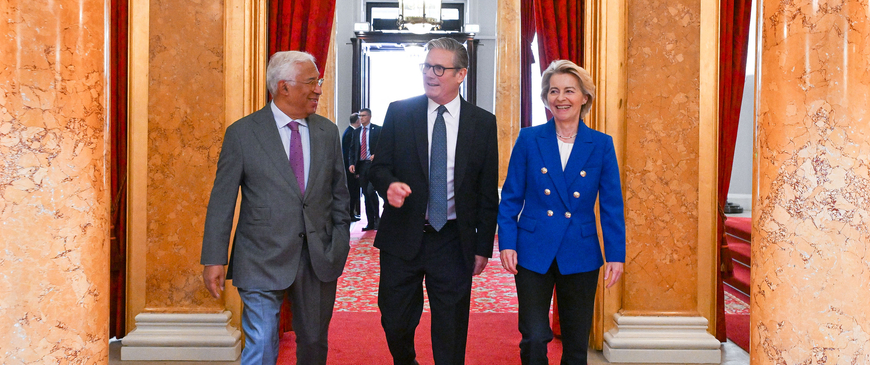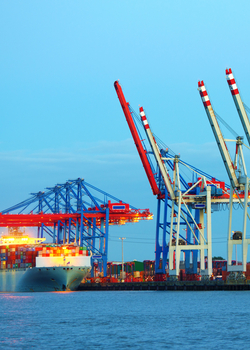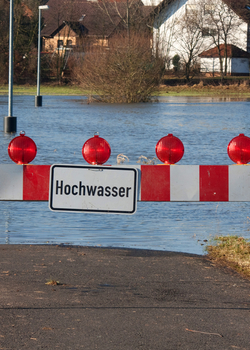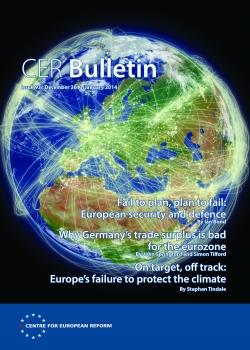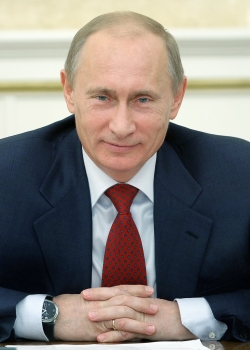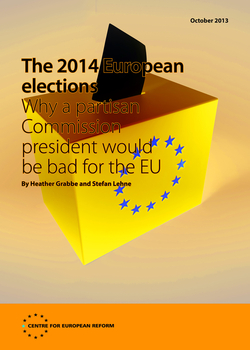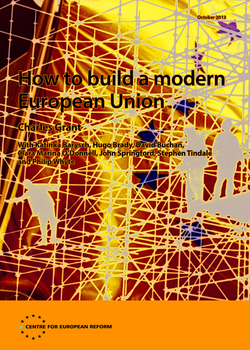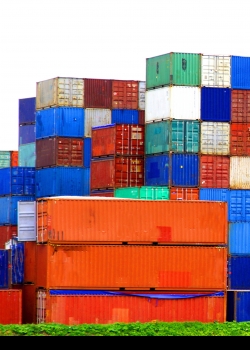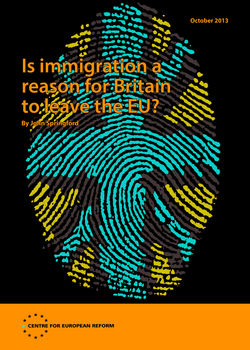Research
Running into the sand? The EU's faltering response to the Arab revolutions
18 December 2013
A new, pragmatic approach to the southern neighbourhood is needed if the EU wants to address the political, economic, social and security challenges following the Arab Spring.
What Germany's new coalition government means for the EU
16 December 2013
Germany finally has a new government. The coalition agreement may be underwhelming, but it tells us little about how Germany will response to future challenges.
Not flashy but effective: Closer EU co-operation in defence investments
13 December 2013
This month, European leaders will discuss how to strengthen EU military co-operation. It is the first time that defence has been on the European Council’s agenda since 2008and EU officials had hoped the member-states would unveil bold initiatives to stem the deterioration of their armed forces.
The Eastern Partnership: The road from Vilnius leads to ...?
09 December 2013
The EU's Eastern Partners are increasingly heterogeneous. Reform-minded Georgia and Moldova deserve support; Ukraine needs tough love. The EU should stand up to Russian pressure.
David Cameron and EU migration: Nasty, visionary – or just necessary?
05 December 2013
David Cameron is more style than substance on EU migration. But a wider European debate on managing the free movement of people has merit.
Fail to plan, plan to fail: European security and defence
29 November 2013
In December, EU leaders will discuss defence. Instead of wrangling over capability shortfalls, they should first agree what they want to achieve, and how.
Why Germany’s trade surplus is bad for the eurozone
29 November 2013
In late October, the US singled out Germany as a threat to the global economy. The Treasury issued a report saying that Germany’s current account surplus – now around 7 per cent of GDP – imposes "a deflationary bias for the eurozone as well as for the world economy."
On target, off track: Europe’s failure to protect the climate
29 November 2013
Europe likes to see itself as a leader in attempts to control climate change. But it is not. The EU's own greenhouse gas emissions are falling. However, that is due to de-industrialisation and the fact that so many of the goods Europeans consume are now manufactured in China or India.
Issue 93 - 2013
29 November 2013
- Fail to plan, plan to fail: European security and defence, Ian Bond
- Why Germany’s trade surplus is bad for the eurozone, John Springford, Simon Tilford
- On target, off track: Europe’s failure to protect the climate, Stephen Tindale
The EU's 'yellow card' comes of age: Subsidiarity unbound?
12 November 2013
National parliamentarians' rejection of a proposed prosecutor for the EU marks their arrival as serious players in how the Union is governed.
CSDP between internal constraints and external challenges
31 October 2013
EU Institute for Security Studies
Improving Europe's military and civilian capabilities in a shifting security environment represents a major challenge for the EU and its member-states.
Europe should regulate to promote carbon capture and storage
30 October 2013
The EU should give grants to coal and gas carbon capture and storage demonstration projects, and regulate to require coal plants to use this technology.
Britain is held back by its business culture, not the EU
28 October 2013
Britain's big competitiveness problem is not red tape, business taxes or the EU but business short-termism, and the system of corporate governance that encourages it.
Ukraine: Edging towards the EU?
24 October 2013
If Ukraine signs an EU Association Agreement next month, that is only the start. Implementing it will take hard work from Kyiv and support from Brussels.
Is Putin going soft?
16 October 2013
Vladimir Putin seems to be opening up Russia’s political system, a little. But his hard-line tactics in Russia’s neighbourhood are failing to win friends.
The 2014 European elections: Why a partisan Commission president would be bad for the EU
14 October 2013
A strong, independent, non-partisan Commission is vital for the EU and the euro. If political parties nominate its next president, the Commission could not referee EU rules.
How to build a modern European Union
10 October 2013
The CER proposes reforming the EU’s policies and institutions, to foster a more dynamic European economy and to make decision-making more accountable.
Eurozone recovery: The world is not enough
04 October 2013
The eurozone is too big to rely on exports for economic growth. It needs policies suited to a large continental economy, not ones perfected by Germany.
Is immigration a reason for Britain to leave the EU?
01 October 2013
A 2013 policy brief that remains relevant today: Britons are increasingly hostile to one of the single market's four freedoms: the free movement of labour. But EU immigration makes Britain's economy stronger.
What would a Brexit mean for EU competition policy?
30 September 2013
A British exit from the EU could have important repercussions for competition policy. Britain and the remaining EU countries would both be affected.


